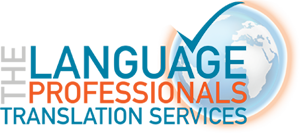What is the difference between an interpreter and a translator?
Have you ever needed language services for your business or personal needs? Then you may have looked for a someone to help you understand some documents in Arabic or to assist you with international clients and suppliers at the latest international fair you have taken part in. But was a translator or an interpreter what you really needed? The difference may seem minimal, but a closer look shows it is substantial.
Unlike translation, which involves written texts, interpretation refers to oral communication. Moreover, translation allows time for consulting different types of documents – for example dictionaries, glossaries, and databases – whereas interpretation has to be done on the spot.
Both translation and interpretation are very complex activities and they require a set of professional skills that can only be acquired through specific education and vocational experience. The fact that someone can speak two languages does not mean he or she will be able to interpret an oral speech faithfully and accurately, so beware of all non- professional and self-proclaimed interpreters.
How are carried out?
Interpretation services may be performed in two different ways:
consecutively, with the interpreter starting to interpret as soon as the original speaker finishes his or her speech;
simultaneously, with the interpreter speaking at the same time as the person giving the speech in the source language. Simultaneous interpreters incorporate a delay of 5-10 seconds before starting to interpret the speech for the target audience.




